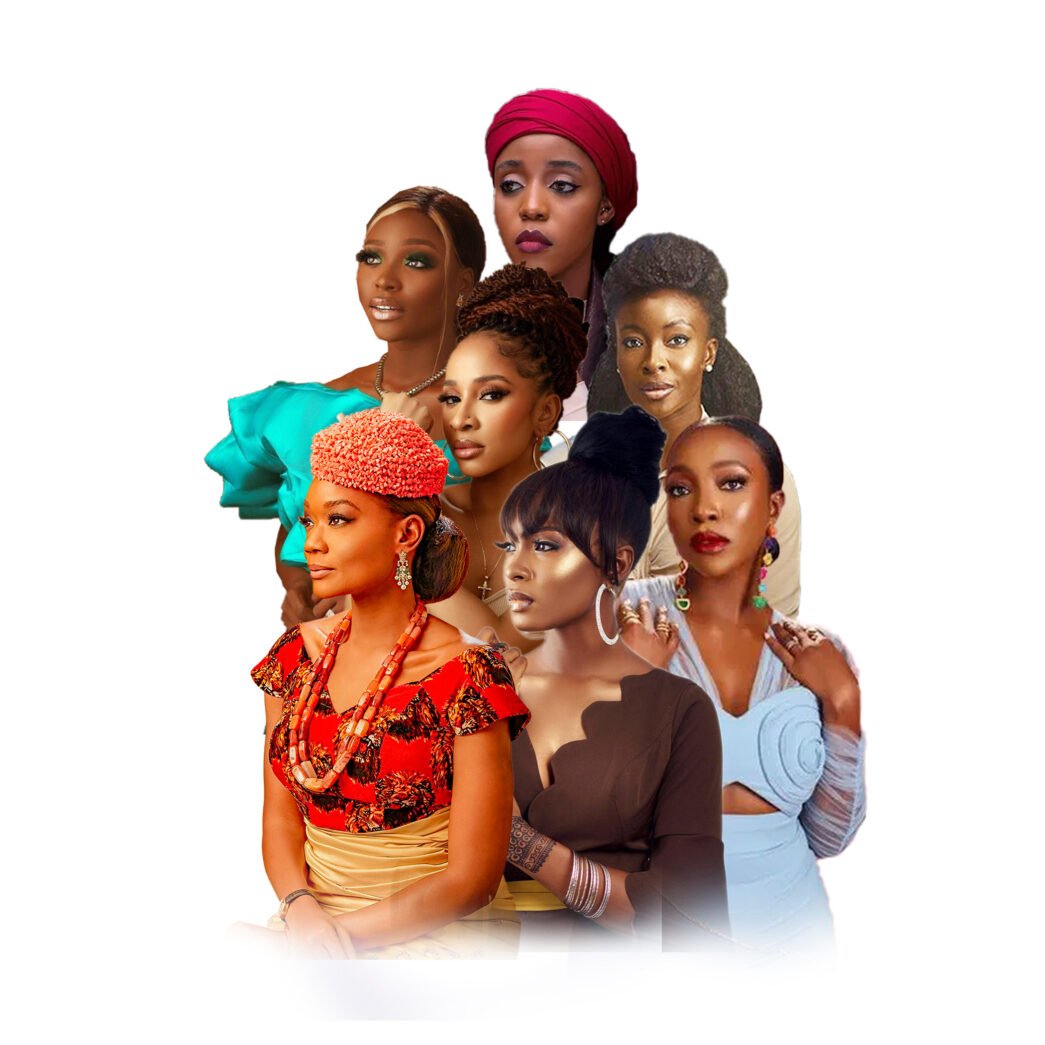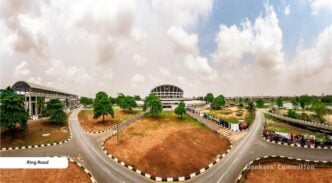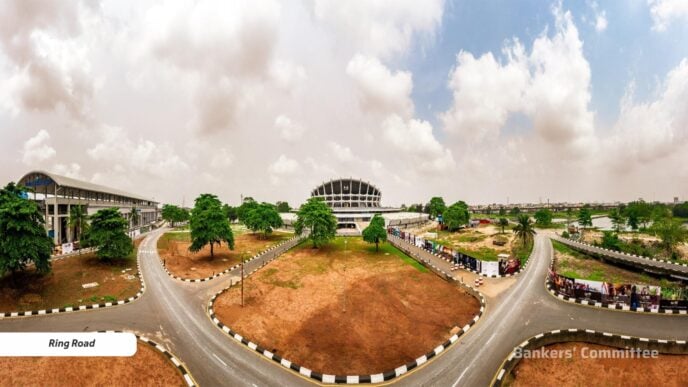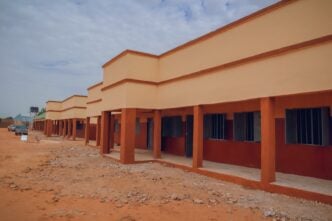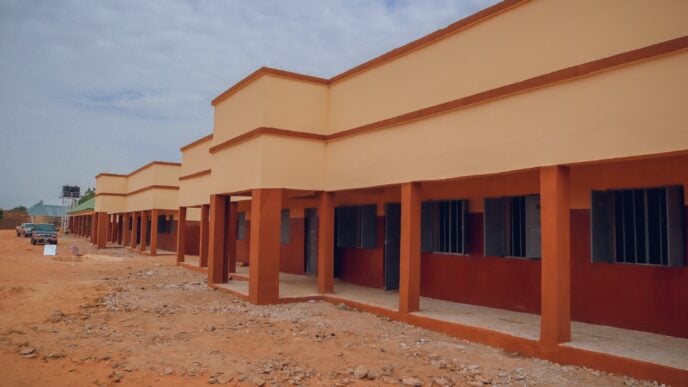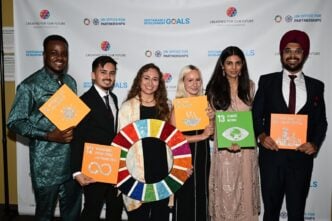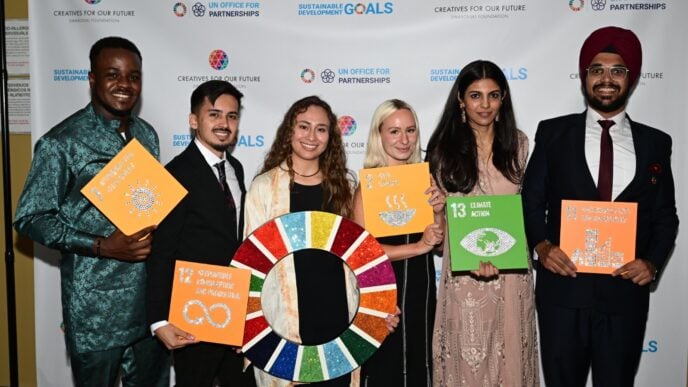Nigeria is many things: a diverse people, an energetic youth, kings and queens of music, film, food, and culture. We are the largest congregation of Black people anywhere on the planet and a powerhouse in the diaspora. As a collective, we contribute to our nation’s progress and hold aspirations for its future.
Yet, our country faces a critical challenge—one that threatens not just women but all Nigerians. Over 70% of Nigeria’s people living in poverty are women. Evidence shows that women contribute more to social and economic development than men, reinvesting their earnings into the sustenance, education, development, and well-being of their families and communities. When women do not have the access and opportunities they need to play their part in the economy, the nation loses productivity and performs badly across development indices.
According to the Africa Development Bank (AfDB), women have a loan repayment rate of over 95 percent, yet, men with a lower repayment rate receive more credit. In Nigeria, there is a $21 billion finance gap for women-owned SMEs, highlighting the systemic barriers women face, despite being the more reliable borrowers.
These grim statistics may seem like a “women’s problem”, but they affect everyone. As President Akinwumi Adesina of the AfDB rightly puts it: “No bird can fly with one wing. When women get the same access to finance as men, African economies will fly with two wings”. Conversely, when women don’t get the access they need to play their part in the economy, the nation loses a lot of productivity and endangers itself in too numerous ways to count — just like a bird flying with one wing.
Despite these challenges, Nigerians have repeatedly defied the odds. When the Ebola virus struck in July 2014, we united to defeat it and prevented what could have become a global pandemic. When the COVID-19 virus became a global pandemic, the data showed that Africa would record some of the highest numbers of deaths in the world, but we upset the odds and survived. We beat polio and defied predictions of national collapse after the landmark 2015 elections. As the gallant soldier for Nigerian progress, Dora Akunyili, always said we are “good people, great nation”.
In every thinkable example where Nigeria has beaten the odds, it has been due to the sheer determination and will of the people. We have done it with the help of the authorities, but we have also been resilient enough to do it without official support. But there comes a time when resilience must be supported by government action.
We live in one of such times.
Did you know that while men and women have equal access to lands in Nigeria, the numbers show that only 10 percent of landowners in the country are female? This means that for every woman who owns a piece of land, there are nine men who do. Step into the boardrooms, only 7% of top companies listed on the Nigerian Stock Exchange are led by women. So, for every 7 women chief executives, we have 93 male CEOs, and in senior management, only 23% are women. In the general corporate workforce, women represent 33%, while men are at 67%. In essence, the higher you go in corporate Nigeria, the lower the possibility of seeing women.
Gender Equality Benefits Everyone
The World Bank estimates that improving gender equality could add up to $22.9 billion to the Nigerian economy, reducing unemployment and increasing prosperity. To achieve this, the Federal Government led by former President Muhammadu Buhari, alongside development partners including the World Bank, developed and approved a National Women’s Economic Empowerment (WEE) Policy and Action Plan in May 2023. This policy seeks to significantly advance gender equality by 2028, focusing on increasing women’s economic participation and leadership across various sectors.
Key targets of the National WEE Policy include increasing women’s labour force participation to 65%, expanding their role in agriculture to 30%, and ensuring women hold 25% of board seats and 30% of senior management positions in companies listed on the Nigerian Stock Exchange. The policy also seeks to improve Nigeria’s ranking on the Global Gender Gap Index, enhance financial inclusion for women to 75%, increase girls’ secondary school enrolment to 75%, and address structural barriers to support economic recovery and digital transformation.
Governors can be Heroes
Nationwide implementation of the WEE policy requires domestication across all states. While states like Lagos, Kano, and Kaduna have begun this process, Nigeria’s progress on the Global Gender Gap Index lags, currently ranking 29th in Africa and 125th globally. Although the country has moved up five places since the policy was introduced, the urgency to accelerate these efforts is critical for economic growth.
This is where Governors come in as state chief executives, to take the baton from the Federal Government and adapt the policy to ensure States action plans support centralisation, accountability and impact measurement of WEE policy interventions. If every Nigerian Governor does his part, we can double our GDP within the lifespan of one administration
As the United Nations General Assembly (UNGA) approaches, the urgency to act becomes even more pronounced. The world is watching, and Governors have a unique opportunity to show, again, that when we as a people decide to stay committed to our goals, nothing can stop us. Today, Nigeria is behind regional peers like South Africa, Kenya, and Ghana, on critical WEE indicators. We believe that Governors can be the heroes by domesticating this policy. With them, the Nigerian story can change from citizens succeeding despite limited government assistance to us excelling on the wings of government support.
Celebrity voices co-authoring: Adesua Etomi-Wellington, Jemima Osunde, Tomike Adeoye, Folu Storms, Ini Dima-Okojie, Maryam Bukar, Osasu Igbinedion Ogwuche
NGO Voices co-authoring: Bukky Shonibare- Invictus Africa, Godwin Henry- Social Good Lagos, Rhoda Robinson- Hacey Health, Nsidibe-Abasi Joy Una- Gatefield Impact, Kingsley Sintim – TOS Foundation, Raihanah Ibrahim – SCIDaR, and Chinasa Collins- Ogbuo- EFINA

